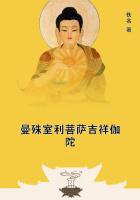Although its etymology points primarily to the place of dwelling, and indirectly to specific occupations, it is chiefly used during the feudal period to denote servitude. It takes in both the man who is personally unfree and stands in complete subjection to the lord, and the free person settled on servile land. Both classes mentioned and distinguished by Bracton are covered by it. The common opposition is between villanus and libere tenens, not between villanus and liber homo. It is not difficult to explain such a phraseology in books compiled either in the immediate interest of the lords or under their indirect influence, but it must have necessarily led to encroachments and disputes: it has even become a snare for later investigators, who have sometimes been led to consider as one compact mass a population consisting of two different classes, each with a separate history of its own. The Latin 'rusticus' is applied in the same general way. lt is less technical however, and occurs chiefly in annals anD other literary productions, for which it was better suited by its classical Derivation. But when it is used in opposition to other terms, it stands exactly as villanus. that is to say, it is contrasted with libere tenens.(4*)The fundamental distinction of personal status has left some traces in terminology. The Hundred Rolls, especially the Warwickshire one,(5*) mention servi very often. Sometimes the word is used exactly as villanus would be.(6*) Tenere in servitute and tenere in villenagio are equivalent.(7*) But other instances show that servus has also a special meaning. Cases where it occurs in an 'extent' immediately after villanus, and possibly in opposition to it, are not decisive.(8*) They may be explained by the fact that the persons engaged in drawing up a custumal, jotted down denominations of the peasantry without comparing them carefully with what preceded. A marginal note servi would not be necessarily opposed to a villani following it;it may only be a different name for the same thing. And it may be noted that in the Hundred Rolls these names very often stand in the margin, and not in the text. But such an explanation would be out of place when both expressions are used in the same sentence.
The description of Ipsden in Oxfordshire has the following passage: item dietus R. de N. hanet de proparte sua septem servos villanos. (Rot. Hundr. ii. 781, b: cf. 775, b, Servi Custumarii.)It is clear that it was intended, not only to describe the general condition of the peasantry, but to define more particularly their status. This observation and the general meaning of the word will lead us to believe that in many cases when it is used by itself, it implies personal subjection.
The term nativus has a similar sense. But the relation between it and villanus is not constant; sometimes this latter marks the genus, while the former applies to a species; but sometimes they are used interchangeably,(9*) and the feminine for villain is nieve (nativa). But while villanus is made to appear both in a wide and in a restricted sense, and for this reason cannot be used as a special qualification, nativus has only the restricted sense suggesting status.(10*) In connection with other denominations nativus is used for the personally unfree.(11*)When we find nativus domini, the personal relation to the lord is especially noticed.(12*) The sense being such, no wonder that the nature of the tenure is sometimes described in addition.(13*) Of course, the primary meaning is, that a person has been born in the power of the lord, and in this sense it is opposed to the stranger -- forinsecus, extraneus.(14*) In this sense again the Domesday of St. Paul's speaks of 'nativi a principio' in Navestock.(15*) But the fact of being born to the condition supposes personal subjection, and this explains why nativi are sometimes mentioned in contrast with freemen,(16*) without any regard being paid to the question of tenure. Natives, or villains born, had their pedigrees as well as the most noble among the peers. Such pedigrees were drawn up to prevent any fraudulent assertion as to freedom, and to guide the lord in case he wanted to use the native's kin in prosecution of an action de nativo habendo. One such pedigree preserved in the Record Office is especially interesting, because it starts from some stranger, extraneus,(17*) who came into the manor as a freeman, and whose progeny lapses into personal villainage; apparently it is a case of villainage by prescription.
The other subdivision of the class-freemen holding unfree land(18*) -- has no special denomination. This deprives us of a very important clue as to the composition of the peasantry, but we may gather from the fact how very near both divisions must have stood to each other in actual life. The free man holding in villainage had the right to go away, while the native was legally bound to the lord; but it was difficult for the one to leave land and homestead, and it was not impossible for the other to fly from them, if he were ill-treated by his lord or the steward.
Even the fundamental distinction could not be drawn very sharply in the practice of daily life, and in every other respect, as to services, mode of holding, etc., there was no distinction. No wonder that the common term villanus is used quite broadly, and aims at the tenure more than at personal status.















